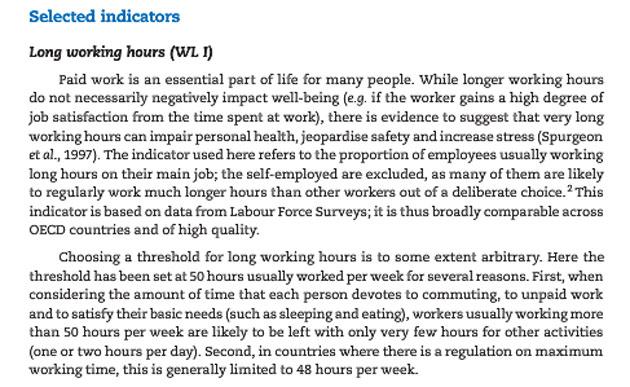
Do men work harder than women? Empirical evidence says maybe. According to the Organisation for Economic Cooperation and Development’s ‘Better Life Index’ Australian men do work more hours than women.
The ‘Better Life Index’ is to the Organisation for Economic Cooperation and Development (OECD) what comparing penis length is to high school PE class. Essentially, it’s an annual report compiled by the United Nations to determine which of the 34 industrialised nations are the most righteous across categories like housing, jobs, education, health, environment and work-life balance. In the end the data is collated and each country gets ranked according to their cumulative score. And, in keeping with the high school analogy, it turns out Australia is one hell of a penis.
For the third year in a row Australia has ranked number one on the Better Life Index. That means, statistically speaking, Australians live better lives than people in any other OECD nation, like Sweden (crazy taxes), Canada (grizzly bears) and Norway (cold as heck) which ranked #2, #3 and #4 respectively. Good for you, Australia. Good for you.
An area where Australians rank poorly is the ‘Work-Life Balance’ category. The report states:
An important aspect of work-life balance is the amount of time a person spends at work. Evidence suggests that long work hours may impair personal health, jeopardize safety and increase stress. The share of employees working more than 50 hours per week is not very large across OECD countries. In Australia, however, more than 14% of employees work very long hours, much more than the OECD average of 9%.
It then continues:
Overall, men spend more hours in paid work: in Australia 21% of men work very long hours, compared with 6% of women.
The gender discrepancy’s huge, there’s no denying it. But is it meaningful? We have to assume the data relates to a hefty sample containing males and females with the same employment status (i.e. full time), otherwise the chance of outliers skewing the results or other non-related variables could render the data unreliable. In the complete documentation for the OECD study, the researchers outline the selection criteria with greater detail – including what hours-per-week constitutes “very long hours” and excluded the self-employed from the category, as you can see in the section below:

Of course, what the study hasn’t identified is the motivating factors behind why more Australian men than women are working long hours. Is it because they are actually harder workers, more motivated to do a good job? Is it because women are faster at completing workplace tasks than men? Is it because men more likely to exaggerate their working hours in surveys, or women are more likely to under-report? Is it because office Internet speed means faster access to after-hours porn? (#Sexist).
Those variables aren’t considered in the Better Life Index, but we’re interested to see if you’ve noticed from personal experience – purely in terms of hours worked – whether there is a noticeable difference (if any) in the behaviour of men and women. Share your opinion in the poll.



